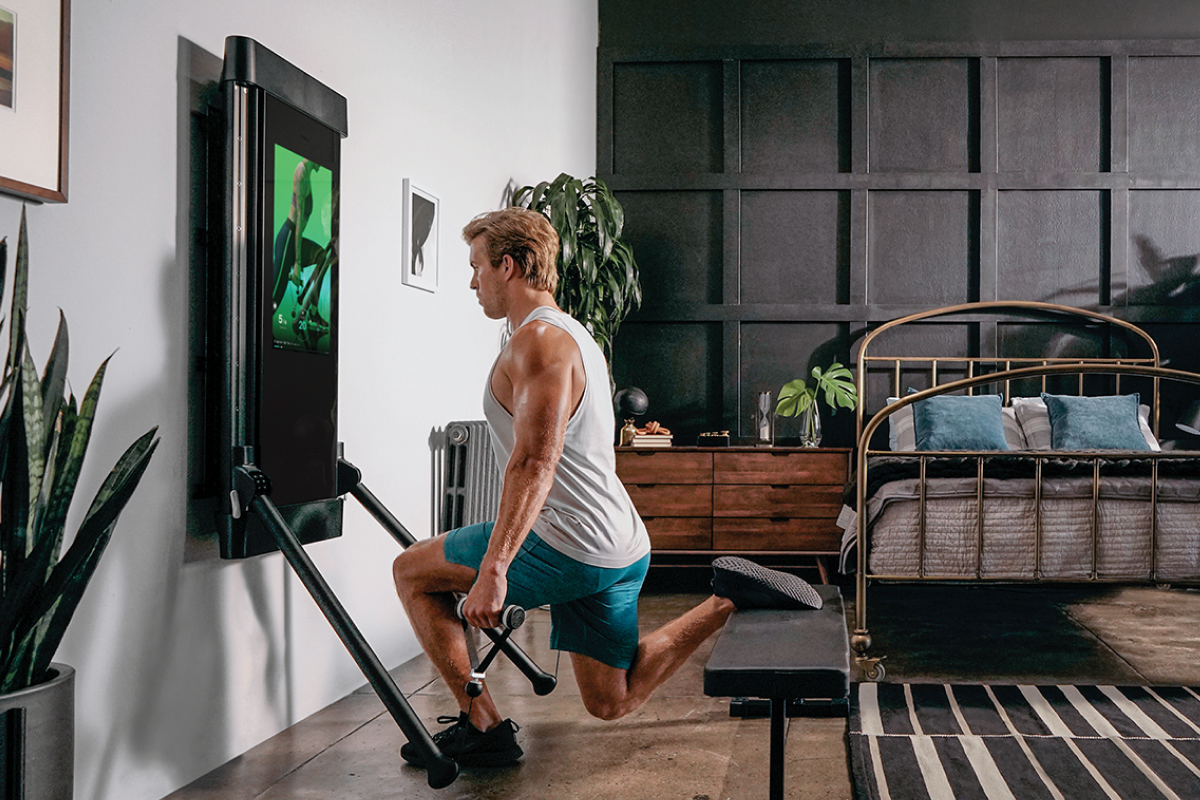A recent study finds that supervised training, delivered through video, may be the best when it comes to staying fit mentally and physically.

- A recent study suggests remotely supervised sessions by a trainer may be even more effective than in-person training.
- One reason could be a greater feeling of safety and comfort, as well as more efficient exercise progression.
- Whether remote or in-person, the study also highlights the emotional benefits of getting more active.
When gyms were closed or limited during pandemic lockdowns, many people still found ways to maintain their fitness levels, but a recent study in Psychiatry Research suggests one strategy was best: Remote sessions overseen by a trainer.
Researchers looked at the mental and physical health of 344 participants, comparing the effectiveness of sessions supervised remotely to classes done in person and to sessions featuring an online instructor but no supervision.
Both groups with the one-on-one attention were better for boosting emotional wellness and fitness, but researchers were surprised to find that the remote training had an edge over classes conducted in person. Participants in the remote group tended to exercise more intensely and benefit from exercise progression the most, they found.
“Especially notable was that those who worked out at home burned as much, if not more, than individuals going to face-to-face classes, and significantly more than those following a self-guided program,” says trainer Garret Seacat, CSCS, founder of Absolute Endurance Coaching and Fitness. That may be because having a trainer can give a level of accountability that may be lacking in a class setting, even one that’s done in person, he adds.
Also, people may have found a greater degree of comfort and safety while exercising remotely, he adds. For example, it’s likely many of the in-person classes required masks and social distancing, which could have potentially reduced their effectiveness.
Another factor that tips the scales toward remote, supervised workouts is faster progression thanks to one-on-one trainer insights, says physical therapist Jasmine Marcus, DPT, CSCS.
“A trainer can help check your form to make sure you’re not putting yourself at risk of injury, or failing to use the muscles you’re trying to target,” she says. “Also, a trainer checks that you’re ramping up appropriately and not doing too much, too soon, which would increase your likelihood of getting hurt.” Those insights can add up to greater efficiency and progress, she adds.
Tonal’s artificial intelligence and unique features can stand in for that personal training guidance. For example, Form Feedback provides you with detailed notes on your strength training form in real-time, while the sensor technology detects your movements and gives cues for proper form through coach-led programming.
Tonal also has a digital Spotter: This dynamic weight mode is similar to having a trainer in the gym. If you’re struggling in a rep, Spotter automatically reduces the weight and increases resistance once it senses you can handle it again, allowing you to challenge yourself and push through those last few reps the same way a trainer would.
Equally important to physical improvements are the potential mental changes that can come with fitness—and the recent study highlights that remotely delivered training may be effective there, too. The researchers tracked participants’ reports of sadness, tension, reduced sleep and appetite, concentration difficulties, indifference, pessimism, and suicidal thoughts.
Exercise in any form tended to provide a lift and reduced these feelings, even in the midst of a long lockdown, and those doing remote, supervised sessions reported the biggest drop in these issues.
“Obviously, exercise doesn’t replace medications that might be needed for diagnosed major depressive disorder,” says Seacat. “But those suffering from lack of contact with other humans or self-confidence issues from weight gain during the pandemic can benefit greatly from beginning a workout program, especially from a remote trainer or digital program.”